第105章 CHAPTER IX(8)
Nelson now desired to be turned upon his right side, and said, "Iwish I had not left the deck; for I shall soon be gone." Death was, indeed, rapidly approaching. He said to the chaplain, "Doctor, I have NOT been a GREAT sinner;" and after a short pause, "Remember that Ileave Lady Hamilton and my daughter Horatia as a legacy to my country."His articulation now became difficult; but he was distinctly heard to say, "Thank God I have done my duty." These words he repeatedly pronounced; and they were the last words which he uttered. He expired at thirty minutes after four--three hours and a quarter after he had received his wound.
Within a quarter of an hour after Nelson was wounded, above fifty of the VICTORY's men fell by the enemy's musketry. They, however, on their part, were not idle; and it was not long before there were only two Frenchmen left alive in the mizzen-top of the REDOUTABLE. One of them was the man who had given the fatal wound: he did not live to boast of what he had done. An old quarter-master had seen him fire; and easily recognised him, because he wore a glazed cocked hat and a white frock.
This quarter-master and two midshipmen, Mr. Collingwood and Mr. Pollard, were the only persons left in the VICTORY's poop; the two midshipmen kept firing at the top, and he supplied them with cartridges.
One of the Frenchmen, attempting to make his escape down the rigging, was shot by Mr. Pollard, and fell on the poop. But the old quarter-master, as he cried out, "That's he, that's he," and pointed at the other who was coming forward to fire again, received a shot in his mouth, and fell dead. Both the midshipmen then fired at the same time, and the fellow dropped in the top. When they took possession of the prize, they went into the mizzen-top, and found him dead, with one ball through his head, and another through his breast.
The REDOUTABLE struck within twenty minutes after the fatal shot had been fired from her. During that time she had been twice on fire in her fore-chains and in her forecastle. The French, as they had done in other battles, made use in this, of fire-balls and other combustibles;implements of destruction which other nations, from a sense of honour and humanity, have laid aside; which add to the, sufferings of the wounded, without determining the issue of the combat: which none but the cruel would employ, and which never can be successful against the brave. Once they succeeded in setting fire, from the REDOUTABLE, to some ropes and canvas on the VICTORY's booms. The cry ran through the ship, and reached the cockpit; but even this dreadful cry produced no confusion: the men displayed that perfect self-possession in danger by which English seamen are characterised; they extinguished the flames on board their own ship, and then hastened to extinguish them in the enemy, by throwing buckets of water from the gangway. When the REDOUTABLE had struck, it was not practicable to board her from the VICTORY; for, though the two ships touched, the upper works of both fell in so much, that there was a great space between their gangways; and she could not be boarded from the lower or middle decks because her ports were down.
Some of our men went to Lieutenant Quilliam, and offered to swim under her bows, and get up there; but it was thought unfit to hazard brave lives in this manner.
What our men would have done from gallantry, some of the crew of the SANTISSIMA TRINIDAD did to save themselves. Unable to stand the tremendous fire of the VICTORY, whose larboard guns played against this great four-decker, and not knowing how else to escape them, nor where else to betake themselves for protection, many of them leaped overboard and swam to the VICTORY; and were actually helped up her sides by the English during the action. The Spaniards began the battle with less vivacity than their unworthy allies, but they continued it with greater firmness. The ARGONAUTA and BAHAMA were defended till they had each lost about four hundred men; the SAN JUAN NEPOMUCENO lost three hundred and fifty. Often as the superiority of British courage has been proved against France upon the seas, it was never more conspicuous than in this decisive conflict. Five of our ships were engaged muzzle to muzzle with five of the French. In all five the Frenchmen lowered their lower-deck ports, and deserted their guns; while our men continued deliberately to load and fire till they had made the victory secure.